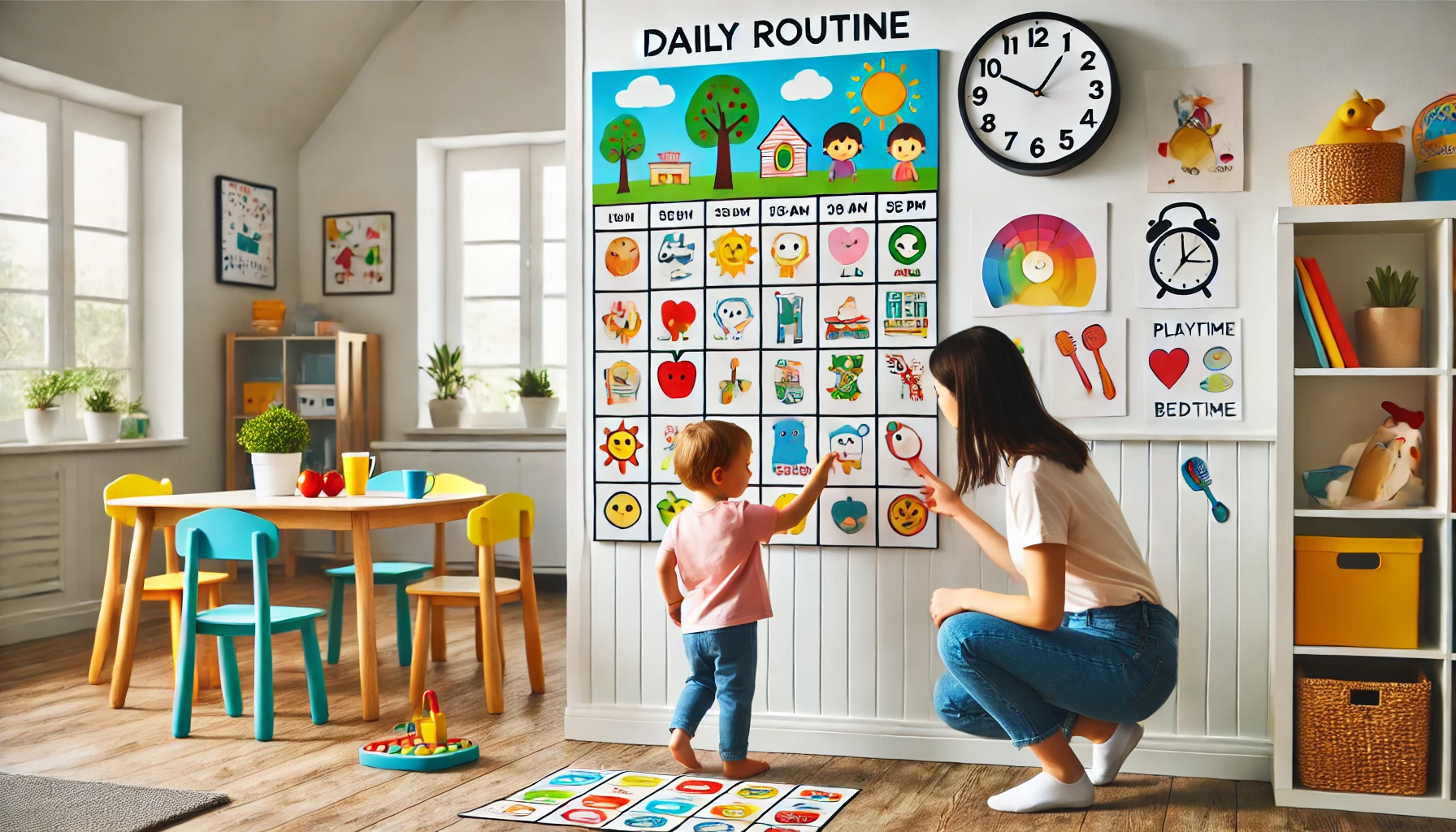How to Teach Young Children About Time Management and Daily Routines
For young children, time is an abstract concept—but daily routines help them feel safe, confident, and prepared for what comes next. Teaching time management at an early age isn’t about watching the clock but about understanding order, transitions, and healthy habits. With visual aids, consistency, and fun rituals, children can begin to develop time awareness that will serve them throughout life.
Why Teaching Time Management Matters
- Creates a sense of security and predictability
- Encourages responsibility and independence
- Reduces stress and meltdowns during transitions
- Builds habits for school and life
- Supports emotional regulation and focus
1. Use Simple Language to Explain Time
Young children grasp concepts better with relatable terms.
Activity Idea:
- Say: “First we eat breakfast, then we brush our teeth.”
- Use words like morning, afternoon, and night.
- Use events instead of exact time: “After playtime, it’s snack time!”
What Kids Learn:
- The natural flow of their day.
- How to anticipate what comes next.
- Comfort in routines and predictability.
2. Create a Visual Schedule
Pictures help children “see” time.
Activity Idea:
- Make a chart with images for each activity: waking up, meals, playtime, bedtime.
- Let your child help decorate it to increase engagement.
- Refer to the chart throughout the day: “Let’s see what’s next!”
What Kids Learn:
- Visual cues for time awareness.
- Confidence in following routines.
- Ownership of their daily activities.
3. Build Predictable Daily Routines
Consistency builds trust and independence.
Activity Idea:
- Keep wake-up, meals, nap, and bedtime consistent.
- Use “routine songs” for activities like cleanup or brushing teeth.
- Prepare for transitions with reminders: “Five more minutes, then lunch.”
What Kids Learn:
- Security in daily patterns.
- That routines help things go smoothly.
- Self-management skills.
4. Use Timers and Countdowns
Help children understand time passing.
Activity Idea:
- Use a sand timer or visual timer for activities like clean-up time or screen time.
- Give verbal countdowns: “Two more minutes of play, then it’s bath time.”
- Turn it into a game: “Can we tidy up before the timer runs out?”
What Kids Learn:
- Time is measurable and manageable.
- Transitions feel predictable, not sudden.
- That they can pace their activities.
5. Play Time-Related Games
Learning through play makes it stick.
Activity Idea:
- Play sequencing games: “What do we do after breakfast?”
- Use songs like “What Time Is It, Mr. Wolf?”
- Let kids “play teacher” and guide you through a pretend day.
What Kids Learn:
- How to order events in a day.
- Language and thinking skills around time.
- That learning time is fun!
6. Encourage Independence with Routine Tasks
Empower children to manage parts of their routine.
Activity Idea:
- Provide checklists with pictures they can mark off.
- Offer choices within routines: “Would you like to pick your pajamas or your toothbrush first?”
- Praise self-led efforts: “You got ready all by yourself—great job!”
What Kids Learn:
- Ownership of their schedule.
- Decision-making within structure.
- Confidence in their abilities.
7. Model Good Time Management
Demonstrate how you manage your day.
Activity Idea:
- Narrate your own planning: “I’m making a list so I don’t forget what to do today.”
- Keep family routines visible: calendars, to-do lists, and reminders.
- Let your child “help” plan simple parts of the day.
What Kids Learn:
- Time management is a normal, useful skill.
- Adults use tools to stay on track too.
- Planning makes the day smoother.
8. Celebrate Routine Successes
Positive reinforcement builds lasting habits.
Activity Idea:
- Use a sticker chart to track morning or bedtime routines.
- Say: “You followed your schedule so well today!”
- Reflect: “What part of your routine did you like best?”
What Kids Learn:
- That routines lead to success and pride.
- Motivation to continue healthy habits.
- Reflection supports growth.
Final Thoughts
Helping children understand time management and routines gives them the tools to navigate their days with confidence and calm. Through visual aids, consistent patterns, and playful learning, young children can begin to develop the foundation of lifelong time skills. When they feel in control of their time, they feel more secure, independent, and ready for whatever comes next.
